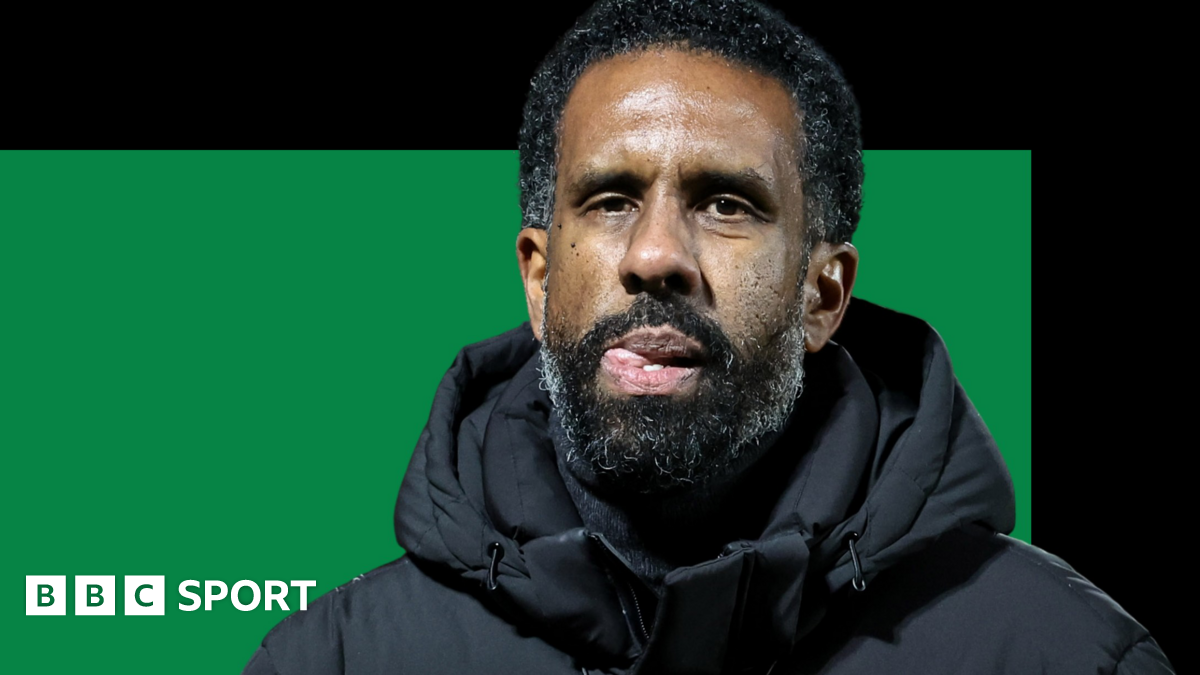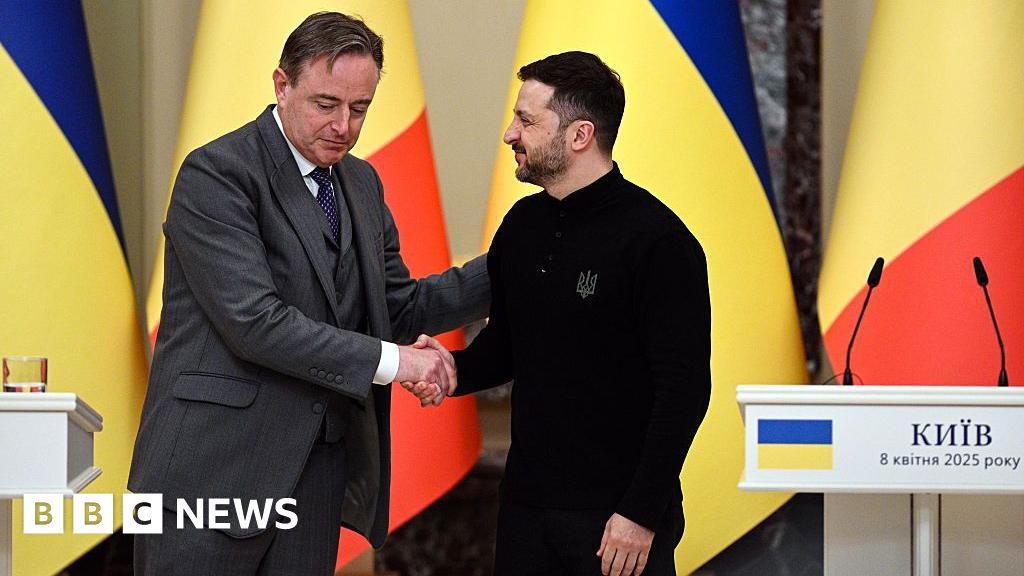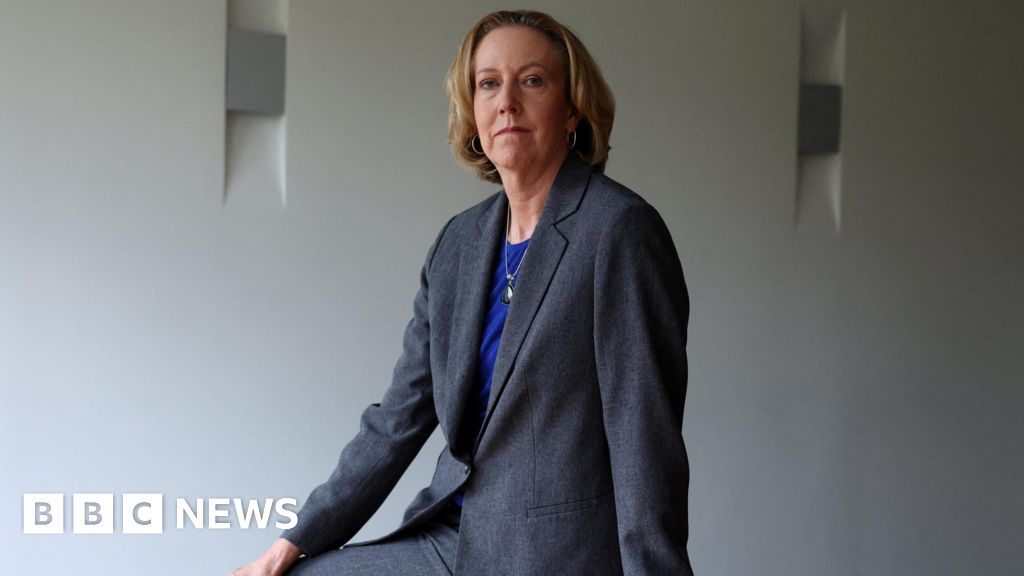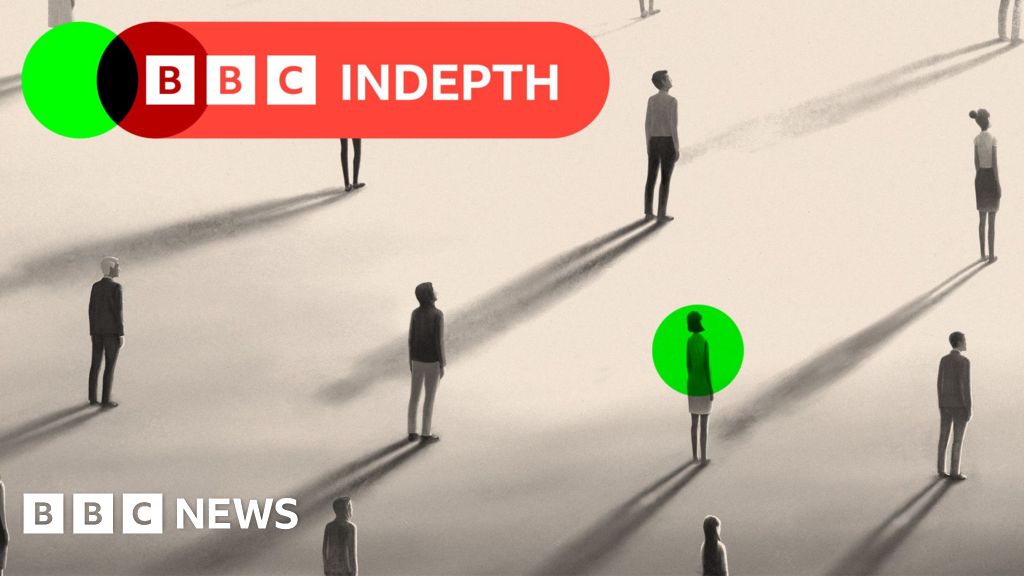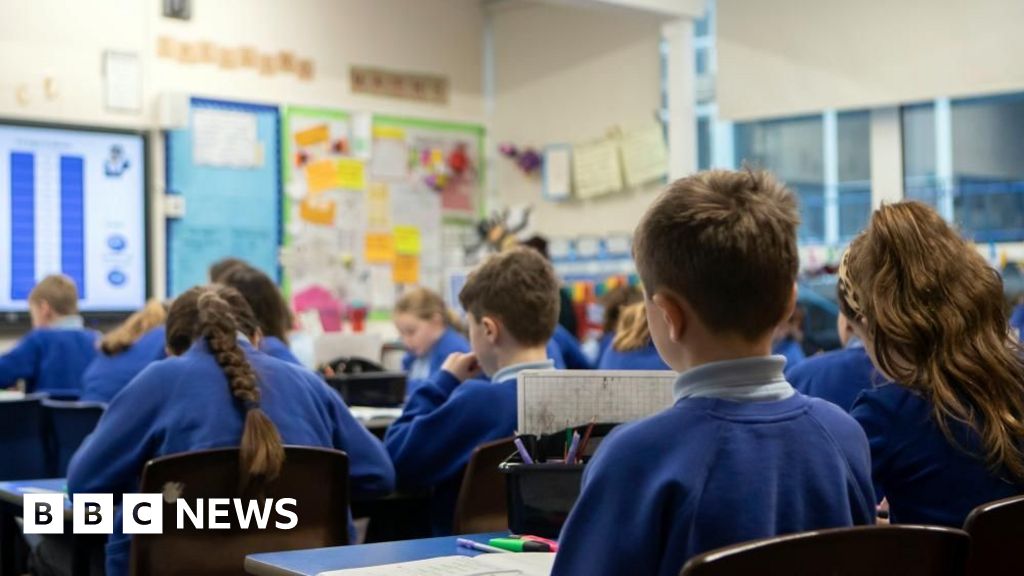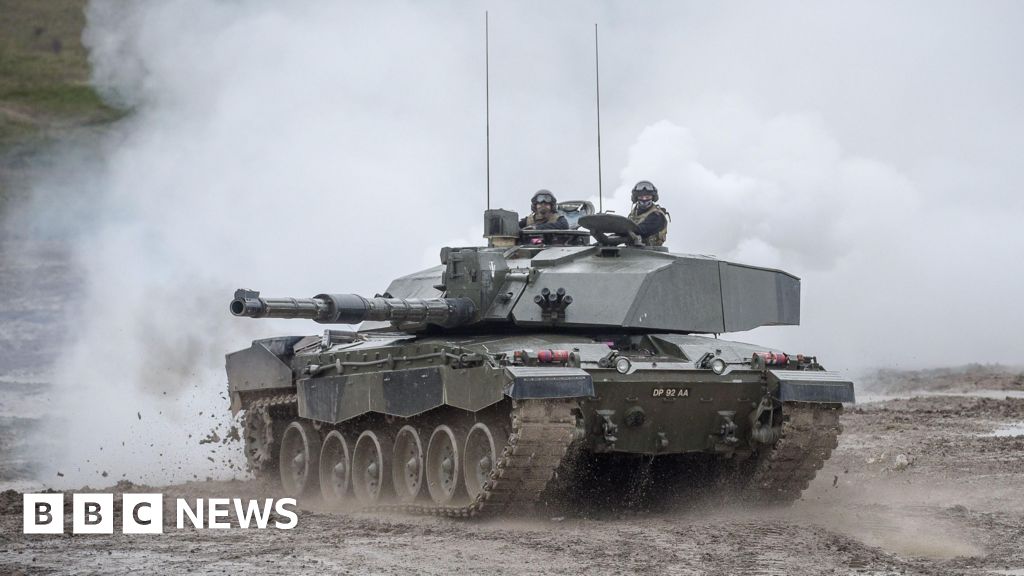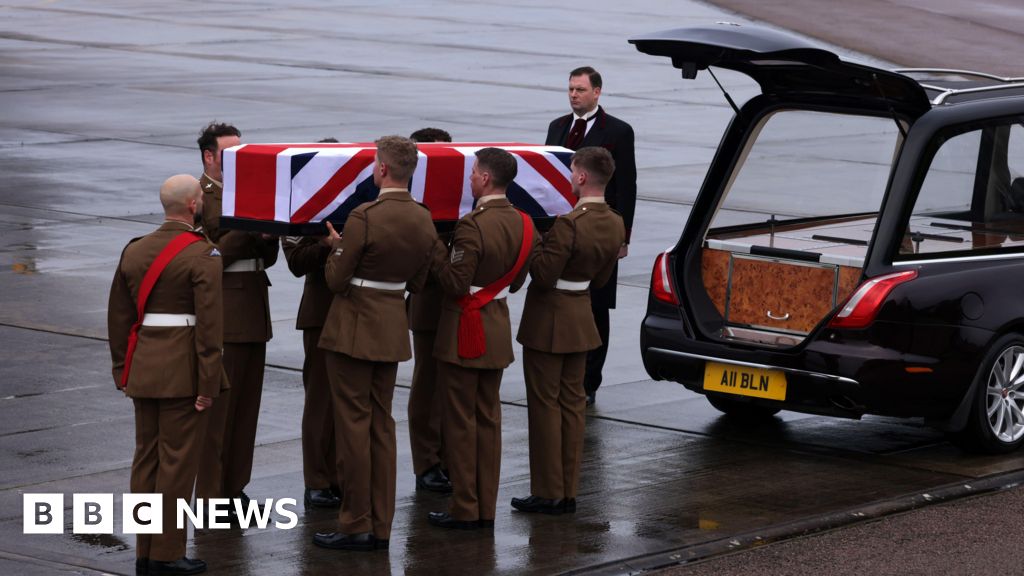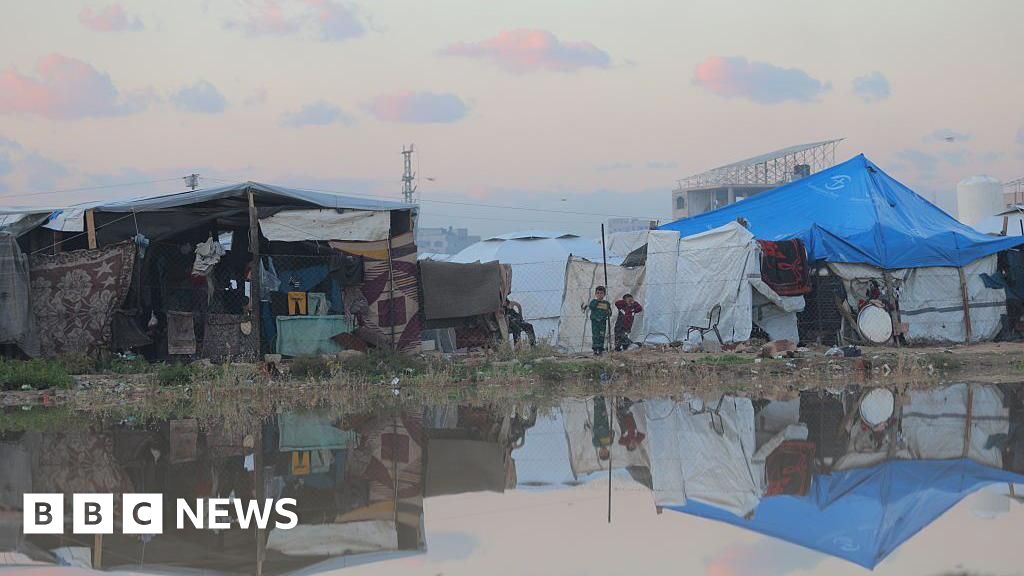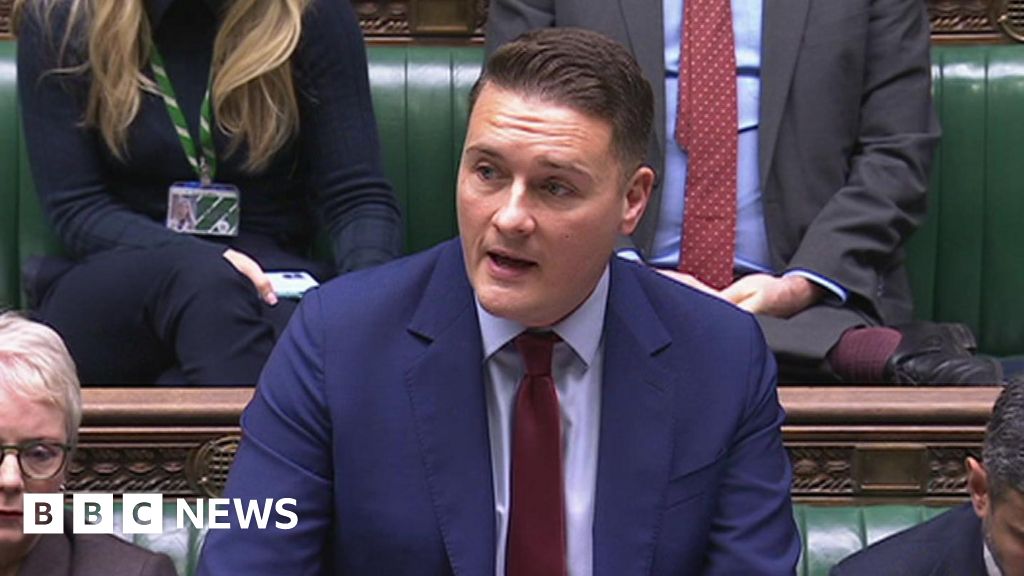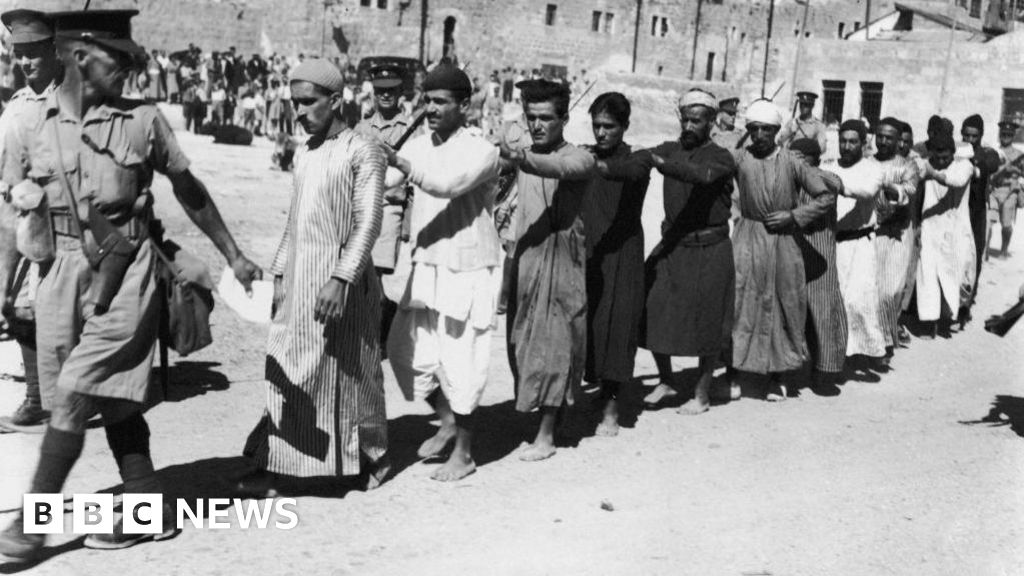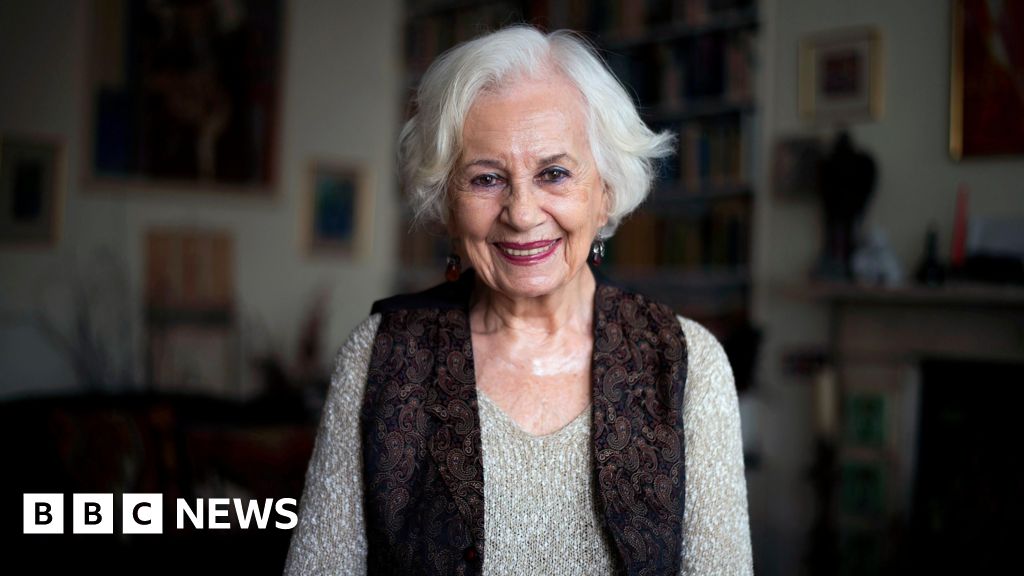Katy WatsonBBC News, Kyiv

 BBC
BBC
The law has changed to allow men under 23, like Roman, to leave Ukraine
Swimming coach Roman Melnik can't get out of Kyiv quick enough.
The 22-year-old is packing his bags and heading to the Czech Republic to begin a new life. There, the physical education graduate hopes to pick up swimming classes to pay his way. Only once he's got some savings together will he then work on his long-held dream of making his way across the Atlantic to Florida or Texas.
"All my family knows how much I always wanted to move to Europe and to the United States," he says, in his nearly bare flat in Ukraine's capital. Most of his belongings are in the suitcase already. There are just a few empty cups lying around – remnants of his farewell party at the weekend. "They're happy of course … [but] when I visited my parents there was a lot of crying."
Until late August, Roman wasn't allowed to leave Ukraine at all. When Russia's full-scale invasion began in February 2022, martial law dictated that men between 18 and 60 – even those not eligible for conscription, which is currently in place for those aged between 25 and 60 – were not permitted to leave the country.
President Volodymyr Zelensky has now announced that young men between the ages of 18 and 22 will no longer be barred from leaving. And those who want to return can do so freely, without the risk of being held at the border.
"If we want to keep boys in Ukraine, we really need them to finish school here first and for their parents not to take them away," President Zelensky explained shortly after the announcement. "It is at this age, in their senior years, that they lose their connection with Ukraine."

 Getty Images
Getty Images
Ukraine's new school year just started - but young men are often sent abroad, rather than staying to study in Ukraine
Nowhere is that loss of connection clearer than in Ukraine's colleges and universities. The buzz of the school corridor is far quieter now, with classroom sizes dwindling, especially in the final year – often families pull boys out of 12th grade and send them abroad just before they turn 18, meaning they miss high school graduation.
There are fewer students enrolling at university too. The Kyiv School of Economics even has a "Come Back Home" initiative offering a grant that covers tuition fees and some living costs for those who left and now want to return.
But Roman doesn't want to stay. And he doesn't have much time to waste before leaving either. He's turning 23 at the beginning of December. After that, the travel ban will apply.
"I was feeling a bit trapped," he says. "I was ready to move that day [of the announcement], but mum convinced me to stay for a bit, so I could say goodbye to my grandparents, to my older sister, to all my friends again."
When the full-scale invasion happened, Roman says Ukrainians rushed to defend their country against Russia. But now, more than three years on, with the war showing no signs of stopping and with people he knows who have died on the front line, that feeling of patriotism among his friends is waning.
"I wouldn't choose to fight," he tells me. "I know that Russia attacked my country and I would kill for my country but only [if the army] takes you and says 'You're in the army."

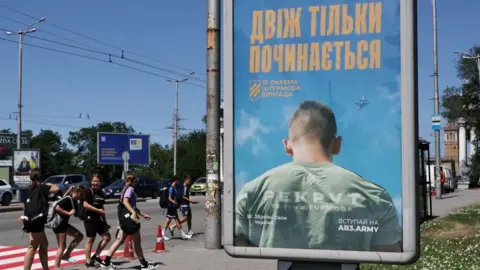 Getty Images
Getty Images
Ukraine is struggling to recruit the men it needs to hold off the Russian invaders
The UN estimates that as of February 2025, the war has created 6.7 million refugees. Another 3.7 million have been internally displaced. In all, Ukraine's population has dropped by 10 million people.
Families fearing for their lives fled the country. While some have ventured back, especially to cities like Kyiv where Russian forces were driven out shortly after the fighting began, there's been a huge exodus.
Not only that, but according to data from the UN High Commissioner for Refugees, the number of Ukrainians who wanted to return home fell to 65% in 2024, down from 77% a year earlier. And the number of those who said they definitely wouldn't return rose from 5% to 11%.
There's constant chatter of a manpower problem in Ukraine's military – how long will the war go on for, and will there be enough soldiers to defend the country? In April last year, Ukraine lowered the conscription age from 27 to 25. But still, it's not enough.
Ukraine is under pressure, with the US reportedly urging President Zelensky to lower the conscription age to 18. In that now infamous meeting with Zelensky at the Oval Office last February, President Donald Trump accused Ukraine of "running low on soldiers".

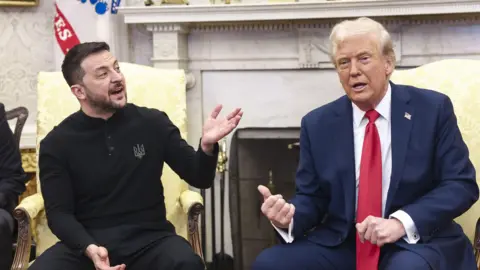 EPA
EPA
The fractious Oval Office meeting saw Trump accuse Ukraine of lacking the manpower to fight off the Russians
In a rare update last December, President Zelensky admitted that 43,000 soldiers had died since February 2022 – that number has obviously risen since. He said 370,000 soldiers had also been wounded.
The manpower problem has been made worse by a low birthrate that began in the 1990s, following the collapse of the Soviet Union, and now exacerbated by the war. Ukraine's birth rate is the lowest in Europe.
Earlier this year, the government offered a one-year contract for volunteers between the ages of 18-24 – before conscription age – complete with an attractive salary and other perks. But this decision to scrap the ban on 18-22-year-olds from travelling would appear to be encouraging people to leave.
"Few expected that a large-scale invasion would last so long," says political analyst Yevhen Mahda, director of the Institute of World Policy in Kyiv.
Still, he's not convinced by the new rules.
"There is little logic and a lot of politics here," he says. Mr Mahda points to recent protests against the government dubbed the "cardboard revolution", so-called because of the cardboard signs carried by protesters angry about a government U-turn on an anti-corruption bill.
"I would say that this is an attempt to give young people a valve to let off steam - so that they can at least have the illusion of a quick trip abroad," he says.
The Ukrainian State Border Guard service said recently that 13,000 people had tried to flee the country illegally since the beginning of the year – some of them repeatedly. There are even men who pay smugglers to get them over the border.
Denys Vetushko, a 24-year-old from Cherkasy in central Ukraine, feels very differently.
"I am not going to hide from anyone," Denys says. "When the full-scale war began, I didn't have any thoughts that I needed to leave Ukraine."


Denys, 24, has no plans to leave his country
His family are Ukrainian Cossacks – a group renowned as warriors and pioneers of independence in Ukraine. That, he says, has helped define him.
Denys returned to his hometown after February 2022 to start patrolling the streets and manning checkpoints. Now he works as a volunteer for Bon Ukraine, which donates military equipment for brigades on the front line.
Of those who now want to leave, he's understanding.
"I am not going to condemn anyone," says Denys. "People choose safety, they choose comfort."
At the Shehyni border crossing in western Ukraine, young men are crossing into Poland, taking advantage of the new rules.
"I visited all I could in Ukraine," says 22-year-old Mykhailo, who's in the queue. He was grateful that the government changed its position on letting young men leave.
"When you are locked in, people will be even more scared to come back. If everything is open, people will come back."
"I can see only advantages with this law," agrees 20-year-old fellow traveller Volodymyr. "My brother is in America, he misses us a lot. He wants to come back."
Additional reporting by Volodymyr Lozhko and Alba Morgade

 3 months ago
79
3 months ago
79



